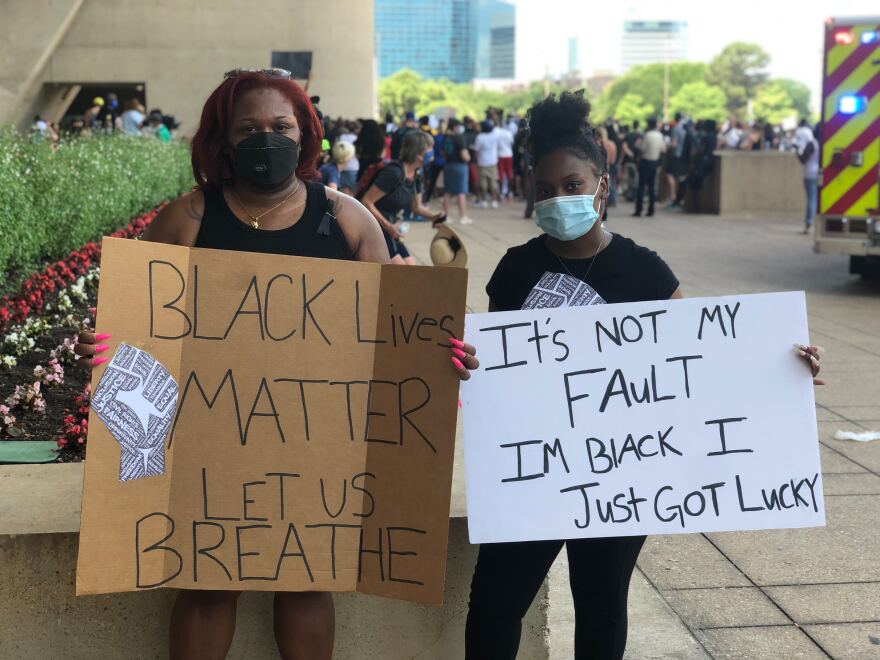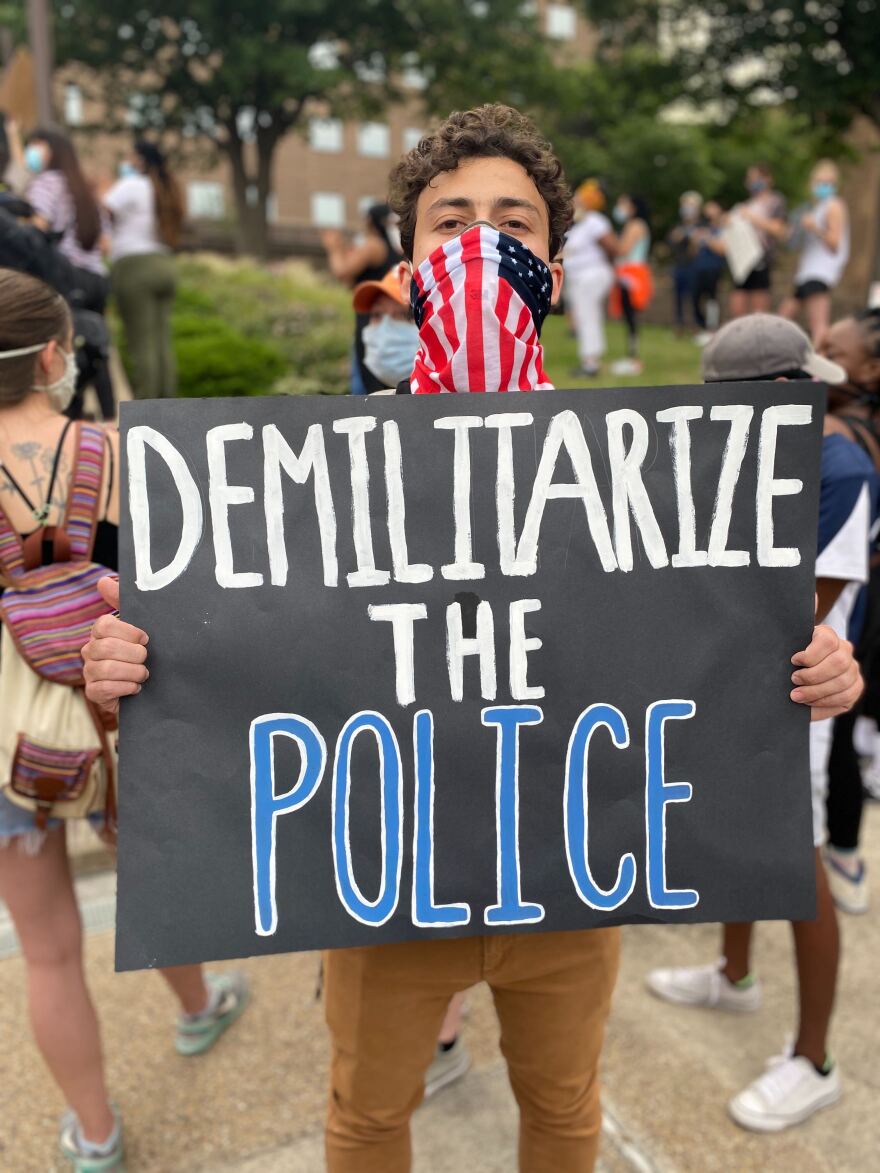This week, thousands of people across Texas protested police killings of black Americans — sparked by the death of George Floyd in Minneapolis. While some violent confrontations broke out between police and demonstrators, the vast majority of Texans participated peacefully.
Public radio reporters around the state spoke with protesters in several cities about why they chose to attend.
Samantha Bouvier, Dallas

"My husband is an officer. So he knows that there are good cops out there, but there are a lot of bad ones and if the goods ones don’t stand up to those bad ones it is just as terrible."
Joman Simmons, Austin

“We’re just trying to promote the power for black people. We stand for our pride. We’re tired of getting killed.”
Relius Johnson, Dallas

“If you don't live this life, you have the privilege and the power to not understand it. And so I do think it's something that's taken for granted for others because they have the luxury to do that. I don't as a black male in today's society. I have a fear that even being in my own home, will I be shot or killed? And then when I go out in public, what are people thinking to me? Sometimes my blackness is seen as a weapon.”
Jinohn Temple, Fort Worth

“We're tired of having conversations. We're just tired of continuously having to tell the authorities, white people, whatever it is that we just don't want to be killed anymore. Like, it shouldn't be a crime to be black.”
Dominique Alexander, Dallas

“We are out here because enough is enough...what they reminded us is that African-Americans are third-class citizens.”
Latoya Lane, Mesquite

"I tell my son you look like the typical suspect. Even though you aren’t, you look that way so you have to behave in a certain way. But you do have freedom of speech and just know that I will be there to help you."
Reza Askari, Dallas

“I see some police saying 'stay safe.' But I see some police intimidating...it’s wrong. We're all peaceful out here."
Moe Williams, Dallas

“I don't believe we are being thugs at all. Thugs are dangerous people; thugs are criminals...There are others that come out here for other reasons. But that is not what us, as a group, and me personally, that's not what we're doing."
Michael Adeiri, Dallas

“...We're all as people going to do what we can do in our power. And I am going to be here as long as I can be.”








